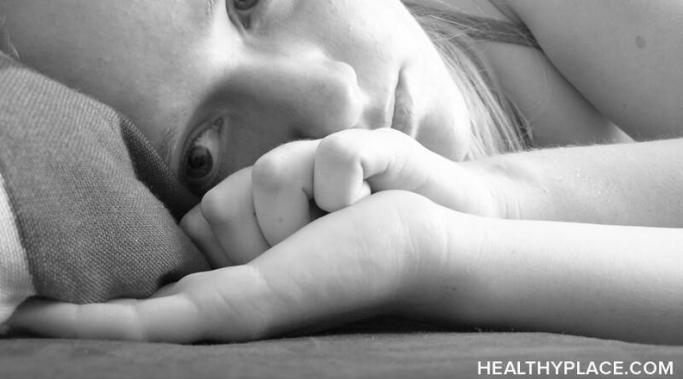Blogs
I'll never forget when I was first diagnosed with borderline personality disorder (BPD). My mother had hand-picked a psychiatrist for me to see based on the doctor's Christian faith. The psychiatrist did an evaluation, diagnosed me with some other things and BPD, then told my mother it was caused by bad parenting.
So began not only my journey in the world of mental illness, but my family's as well.
As a counselor, people often ask me if I am busy at Christmas and if a lot of people are depressed at the holidays. While I do see quite a few people have difficulty with December, I see so many more people struggle with Valentine’s Day. For them, the 14th of February is a reminder of what they don’t have. Single people talk about feeling more alone. Grieving people miss their significant others. And those in unhappy relationships feel the intimacy void more than ever. We had a conversation about this at the office today, and we decided, who SAYS it’s just for couples? We decided to redefine it in a way that works for us and thought we’d spread the love.
I hear from people over and over again how they can’t reach out to others because they are too sick. Normally this is because the person is too depressed, but it could be because the person is too anxious or in some other mood state. And I know for myself that asking for help can be the scariest thing in the world, but if we ever hope to turn the tide, if we ever hope to beat back bipolar, we need to be able to reach outside ourselves for help and support.
Ahh Valentine’s Day. A whole day traditionally devoted to celebrating love. And as it is quickly approaching, my thoughts turn to relationships, all sorts of different ADHD relationships, and how ADHD can be a test for even the strongest connections.
When I work with adults, often the focus of our coaching sessions turns to a request for the best ways to handle conflicts with partners. I often hear these concerns:
As family therapists, we are seeing more and more young people who are suffering from various degrees of teenage depression, childhood anxiety, addictions and social isolation as they try to mask all of the emotions and negative consequences associated with these self-defeating behaviors. We also see many concerned and baffled parents who struggle with trying to find ways to help their wounded and isolated kids.
Surrender (v) - to give oneself up, as into the power of another; submit or yield.
Addiction is a powerful thing. For millions that live with this disease, life can be a constant struggle to go on from day to day. Often, despite their own best efforts, many addicts have difficulty coming to terms with their illness. This is often displayed in the form of such defense mechanisms as denial, blaming, and intellectualization, to name but a few
Things are changing in the world of mental health. This blog will focus on one of these changes: The average age of diagnosis. Yes, this might seem like a boring topic but I'll work to make it interesting because it's important.
Bob Dylan said it best: The Times They Are a-Changin'. . .
Hiya, friends. I’m Elizabeth Prager, an almost 30-year-old gal with between ten and twenty white hairs. More than half of them spawned this summer during cadaver lab in my first semester of Physical Therapy school here in Maryland. I live with my lovely spouse, who will someday save the world, and my two cats, both of whom are constantly seeking to overthrow the current power structure.
One really important thing about me: I’m obsessed with Iceland.
I was a depressed teen. Well, that's sort of putting it lightly. I had thoughts of suicide from a very young age and much of my time in high school was spent either contemplating suicide, or experimenting with the slow suicide of dangerous drugs.
My son Ben, diagnosed with paranoid schizophrenia at age 20 after five years of confusing onset symptoms, has often seemed "frozen in time" in this phase of recovery; emotionally and cognitively stuck at the age he had been when the symptoms began during high school.
Despite three relapses during this near decade of stabilization (all due to instances of refusing meds), Ben has been in recovery most of those years and has progressed in many ways, as I wrote in an earlier post, Mental Illness Frozen in Time Can Thaw.
But, until recently, Ben had few friends and I wondered if he would ever get that particular joy back in his life, or when he might reach the stage of self-acceptance that is crucial to healthy friendships.
Would he ever again regain what he had before schizophrenia set in; the simple joy of having people with whom he could share a meal, see a movie, laugh and talk, or just hang out?










I believe she will only be able to rid herself of her demons, and hopefully her BPD as well, when she's ready to confront the abuse of her father. If she can put the blame where it belongs, she may stop projecting that victim/perpetrator cycle on the present men in her life. These demons are a metaphor for the purgatory she has created for herself. That reality has consequences in the real world, but it need not be real in the tangible sense. Exorcising her demons will require the expenditure of real physical energy and probably the destruction of aspects of her personality. If this ever happens, and it's possible but not probable, then these demons will evaporate. They are only as real as one's personality is real. In short, reality is not the question, it's what you make of the things you feel to be real.